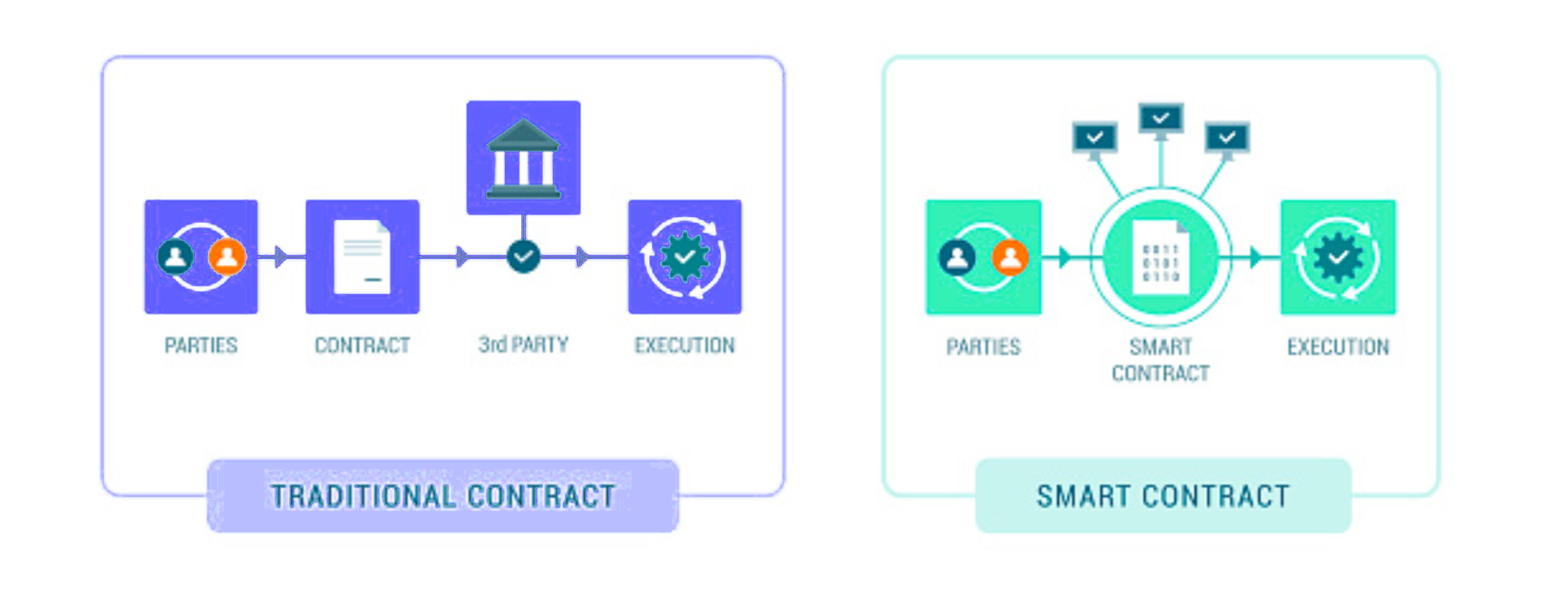Smart Contracts

The Ethereum Virtual Machine (EVM) enabled decentralized applications (dApps) through Smart Contracts.
EVM Smart Contracts are programs stored on a blockchain that run when predetermined conditions are met. They typically are used to automate the execution of an agreement so that all participants can be immediately certain of the outcome, without any intermediary’s involvement. They can also automate a workflow, triggering the next action when conditions are met.
What is the Ethereum Virtual Machine (EVM)?
The Ethereum Virtual Machine (EVM) is the runtime environment for smart contracts on Ethereum. It is a Turing-complete virtual machine that allows anyone to run arbitrary EVM bytecode. Smart contracts are self-executing contracts with the terms of the agreement directly written into code. They operate autonomously, enforcing and executing the contract's terms without the need for intermediaries.
Types of Smart Contracts
- ERC-20 (Tokens): made it possible to create and trade tokens seamlessly.
- ERC-721 (NFTs): introduced unique digital assets (NFTs)
- ERC-1155 (Multi-Tokens): brought efficiency and flexibility to managing multiple token types.
ERC-20: Tokens
ERC-20 is the most widely adopted token standard on Ethereum. It defines a set of rules that a token must implement, ensuring compatibility and interoperability with other ERC-20 tokens and services.
Use Case
- ERC-20 tokens are primarily used for creating cryptocurrencies and facilitating token sales during Initial Coin Offerings (ICOs).
Find more about Tatum and ERC-20 Token operations in the following link.
ERC-721: Non-Fungible Tokens (NFTs)
ERC-721 introduced the concept of non-fungible tokens (NFTs), which represent unique assets. Unlike ERC-20 tokens, each ERC-721 token is distinct and cannot be replaced by another token.
Use Case
ERC-721 tokens are used for digital art, collectibles, and gaming items where uniqueness and provenance are essential.
Find more about Tatum and ERC-721 NFT operations in the following link.
ERC-1155: Multi-Tokens
ERC-1155 is a versatile standard that supports the creation of both fungible and non-fungible tokens within a single contract. It aims to optimize and simplify the management of multiple token types.
Use Case
ERC-1155 is ideal for gaming platforms and digital marketplaces where both fungible items (e.g., in-game currency) and non-fungible items (e.g., unique weapons or skins) coexist.
Find more about Tatum and ERC-1155 Multi Token operations in the following link.
Updated 3 months ago